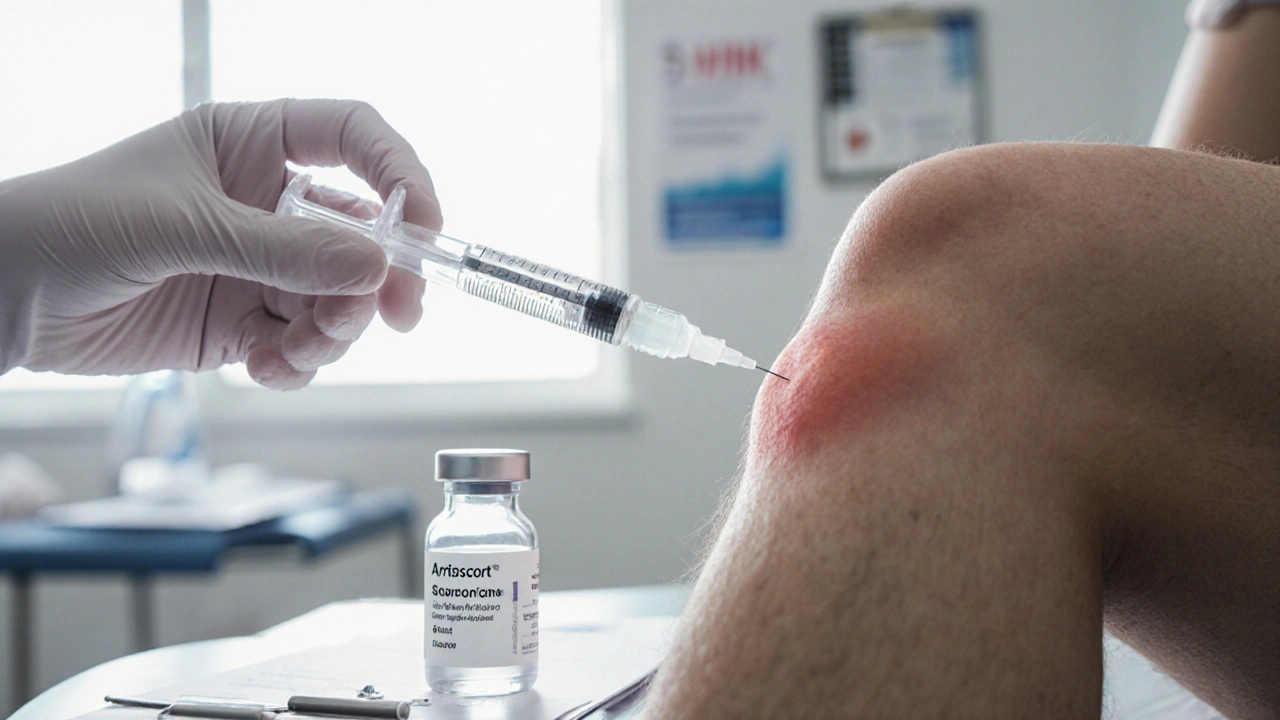Corticosteroid Alternatives: Safer Ways to Tame Inflammation
When you’re looking for corticosteroid alternatives, non‑steroid options that manage pain and swelling while avoiding hormone‑related risks, the market offers a surprisingly broad toolbox. People who want to cut steroids from their routine often ask if they have to give up relief entirely. The short answer is no – there are plenty of other routes that hit the same inflammatory pathways without the baggage of weight gain, mood swings, or bone loss.
One of the most common families is NSAIDs, over‑the‑counter drugs such as ibuprofen, naproxen, and diclofenac that block cyclooxygenase enzymes. These agents are the first line for many acute aches, and they can also be scheduled for chronic conditions when monitored closely. corticosteroid alternatives often start here because they provide fast pain relief with a lower systemic impact than steroids. However, they do carry their own cautions – stomach irritation, kidney strain, and cardiovascular risk – so pairing them with food or a protective agent like a proton pump inhibitor can make a big difference.
Beyond NSAIDs: Antihistamines, Natural Options, and Immunomodulators
For patients whose inflammation is driven by allergic or histamine pathways, antihistamines, drugs like cetirizine, loratadine, and diphenhydramine that block H1 receptors can cut swelling and itching without touching the steroid axis at all. They’re especially useful for skin conditions, allergic rhinitis, or mast cell‑related disorders. While they don’t replace a steroid for a severe flare‑up, they often keep the milder symptoms in check, reducing the need for a steroid burst.
Nature‑based solutions fall under the umbrella of natural anti‑inflammatories, plant‑derived compounds such as curcumin, boswellia, and omega‑3 fatty acids that modulate inflammatory cytokines. Curcumin, for example, interferes with NF‑κB signaling – the same pathway steroids target – but does so more gently. Clinical trials show that a standardized extract can lower joint pain scores in osteoarthritis patients, and fish oil’s EPA/DHA mix has a solid record for heart health and joint comfort. The key is consistency and proper dosing, because the effect builds up over weeks rather than minutes.
When inflammation is part of an autoimmune process, doctors may turn to immunomodulators, medications like methotrexate, azathioprine, or newer biologics that reshape the immune response. These drugs are powerful enough to replace steroids in many chronic diseases such as rheumatoid arthritis, psoriasis, or inflammatory bowel disease. They work by targeting specific cells or cytokines, offering a more precise control than the broad‑spectrum punch of steroids. The downside is the need for regular labs and specialist oversight, but for people who can manage that, immunomodulators provide a steroid‑free long‑term solution.
Putting these pieces together shows how corticosteroid alternatives span three major categories: over‑the‑counter NSAIDs, targeted antihistamines or natural compounds, and prescription immunomodulators. Each category brings its own balance of speed, safety, and convenience. The right mix depends on the condition, severity, and personal health profile. For a mild headache, an NSAID plus a protective stomach aid might be enough. For chronic eczema, an antihistamine paired with a moisturized routine could keep flare‑ups at bay. And for systemic autoimmune disease, a step‑down from steroids to a disease‑modifying drug can protect joints and organs for the long run.
Below you’ll find a curated set of articles that dive deeper into each option. Whether you’re hunting for cheap generic versions, want to compare the pros and cons of specific drugs, or need practical tips for safe online purchasing, the posts ahead have you covered. Scroll down to explore detailed guides, price comparisons, and safety checklists that will help you choose the best corticosteroid alternative for your situation.

Aristocort (Triamcinolone) vs Alternative Steroids: Detailed Comparison
- by Colin Edward Egan
- on 7 Oct 2025
A practical guide comparing Aristocort (triamcinolone) with common steroid alternatives, covering potency, uses, side effects, and how to choose the right option.
